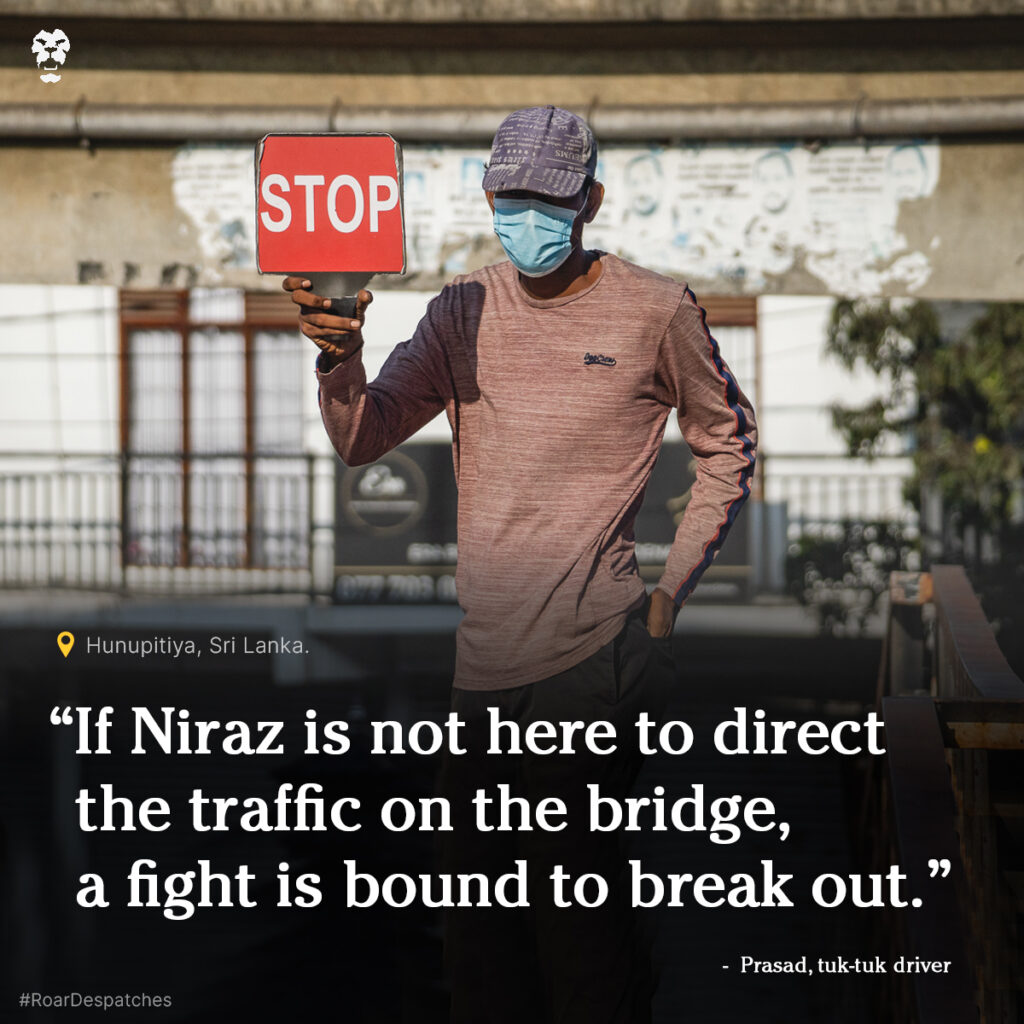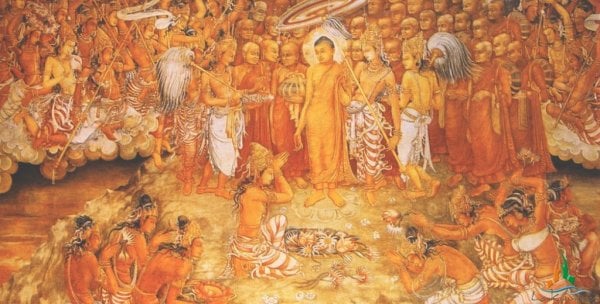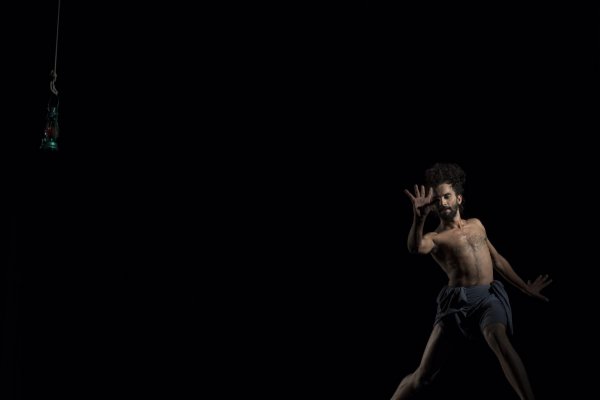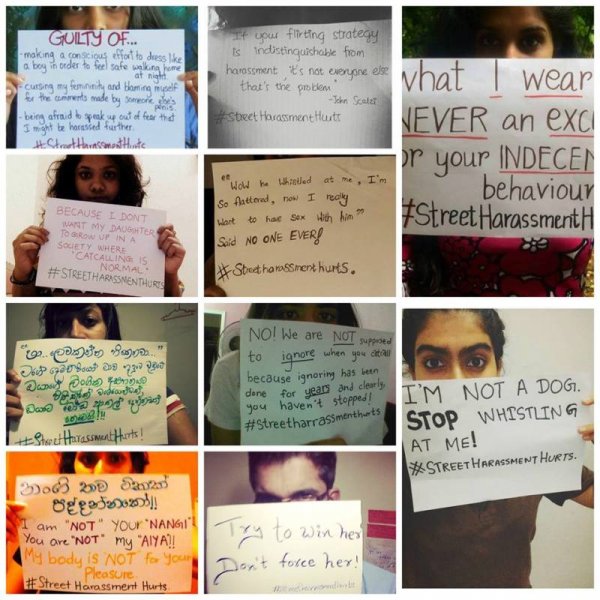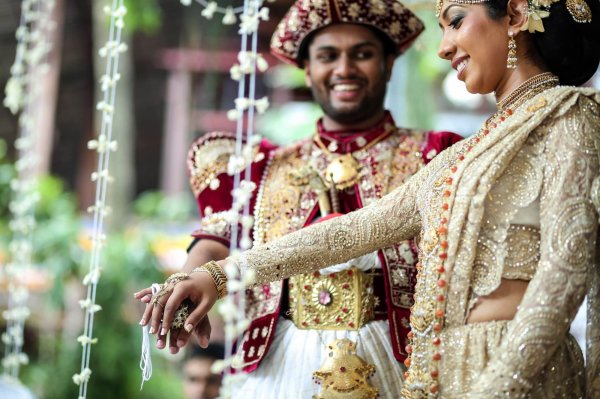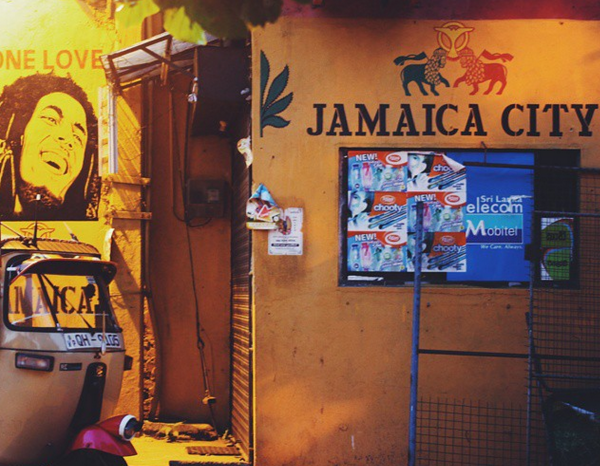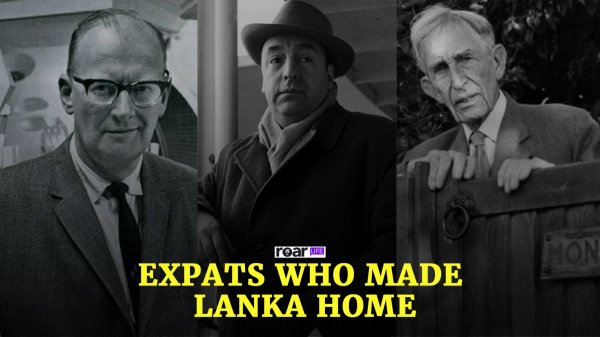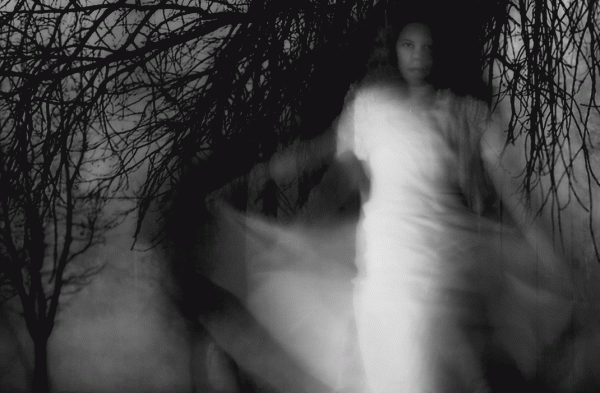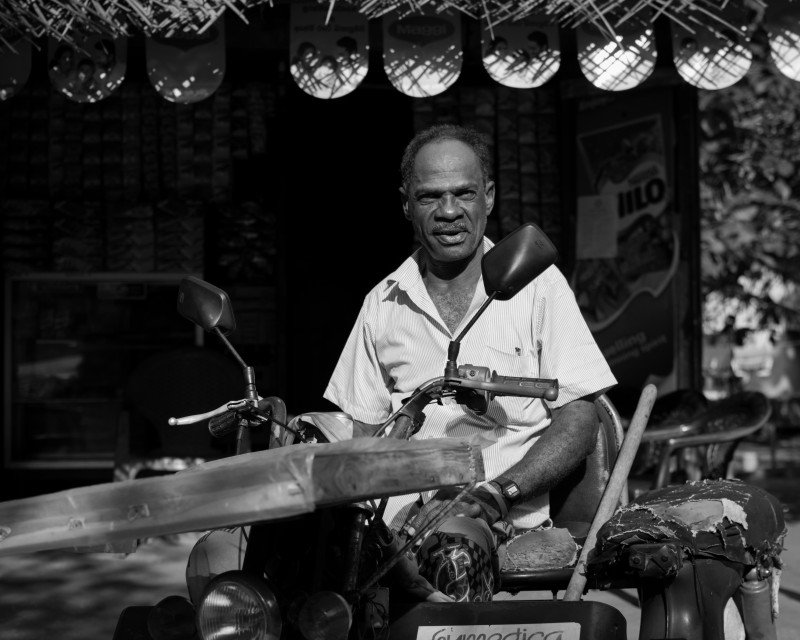
We recently took a bus to Sirambiyadi, in Puttalam, in search of a group of people belonging to Sri Lanka’s lesser known minority, the Kaffir community. Descended from Africans who arrived here with the Portuguese, they once spoke a distinctive creole, and had a culture all of their own. In fact, baila music and dance, which is today perceived as quintessentially Sri Lankan, is actually believed to have been a contribution of the Kaffir community.
Today, many generations onward, the Kaffirs have integrated themselves within the rest of Sri Lankan society. They speak Sinhala and Tamil, and many have married into communities outside of their own. Yet, some of them are trying to hold on to what they have left of their culture, turning to Manja, a Kaffir song and dance tradition, as one means of doing so.
 At 8:45 a.m. we bump into Lumi, the head of the local Manja Band. Lumi leaves home early to go around town selling lottery tickets. He informs Sithara, who also belongs to the community’s musical group, of my arrival, and sets off.
At 8:45 a.m. we bump into Lumi, the head of the local Manja Band. Lumi leaves home early to go around town selling lottery tickets. He informs Sithara, who also belongs to the community’s musical group, of my arrival, and sets off.
 M.J. Emeliyana, 83: “The White man brought our grandfathers down to fight the war.” Out of everyone here, Emeliyana holds the oldest memories, and is the only person of her group who can speak both Tamil and Sinhala. She goes on to talk about her late husband who, like others in the community, used to hold Government jobs, such as at the Kachcheri, the Puttalam Saltern, Gramasevaka’s Office and the National Hospital.
M.J. Emeliyana, 83: “The White man brought our grandfathers down to fight the war.” Out of everyone here, Emeliyana holds the oldest memories, and is the only person of her group who can speak both Tamil and Sinhala. She goes on to talk about her late husband who, like others in the community, used to hold Government jobs, such as at the Kachcheri, the Puttalam Saltern, Gramasevaka’s Office and the National Hospital.
 Austin Saviour, 66
Austin Saviour, 66
 Juliet Josephine, 56: “I have four children and five grandsons. I am a member of the local band. I play the coconut shells. I love my people. I would like to ask everyone that they help us retain our culture.”
Juliet Josephine, 56: “I have four children and five grandsons. I am a member of the local band. I play the coconut shells. I love my people. I would like to ask everyone that they help us retain our culture.”
 Kusitha Nirvan, 11 months. The 7th generation.
Kusitha Nirvan, 11 months. The 7th generation.
 Marie Jasintha, 54: “I am a member of the musical group. I love my language, and my community. Help us protect it.”
Marie Jasintha, 54: “I am a member of the musical group. I love my language, and my community. Help us protect it.”
 “My name is Sherine Alexander. I’m 50 years old. My husband is Morris, and we have three children. I’m married to someone of my own kind, and I love my community. Our musical group is called the Ceylon African Manja. For the last 30 years, we have been going around the country performing at various shows. Although I would prefer to see my language stay alive, I’m starting to fear for it in the current socio-economic conditions. We went on an African safari recently ‒ this was to celebrate alongside Sri Lanka’s independence day celebrations. We were warmly welcomed, and we got immense help and support from the Sri Lankan embassy over there. We are sending our warm regards to the kind folks over there. We love our nation and our race, and we wish for its longevity. Next year, 2017, will mark 200 years since our people came to Sri Lanka.”
“My name is Sherine Alexander. I’m 50 years old. My husband is Morris, and we have three children. I’m married to someone of my own kind, and I love my community. Our musical group is called the Ceylon African Manja. For the last 30 years, we have been going around the country performing at various shows. Although I would prefer to see my language stay alive, I’m starting to fear for it in the current socio-economic conditions. We went on an African safari recently ‒ this was to celebrate alongside Sri Lanka’s independence day celebrations. We were warmly welcomed, and we got immense help and support from the Sri Lankan embassy over there. We are sending our warm regards to the kind folks over there. We love our nation and our race, and we wish for its longevity. Next year, 2017, will mark 200 years since our people came to Sri Lanka.”
 Sithara Sanjeewani, 33: “My family and I are members of the musical group. Although my father is Sinhalese I still love my culture. I would like to conserve and protect it.”
Sithara Sanjeewani, 33: “My family and I are members of the musical group. Although my father is Sinhalese I still love my culture. I would like to conserve and protect it.”
 The village vegetable seller, who visits every family door to door with her basket of vegetables.
The village vegetable seller, who visits every family door to door with her basket of vegetables.
 Sanjana Gayani, 17: “I am also a member of the musical group. I would like to involve all my brothers and sisters in this group and make sure it lives long.”
Sanjana Gayani, 17: “I am also a member of the musical group. I would like to involve all my brothers and sisters in this group and make sure it lives long.”
 Weekend chills.
Weekend chills.
 Dinner
Dinner
 The younger generation, to whom the future belongs
The younger generation, to whom the future belongs
If you enjoyed this piece, you may also want to check out this short video we put together on the Kaffir community’s song and dance culture.

